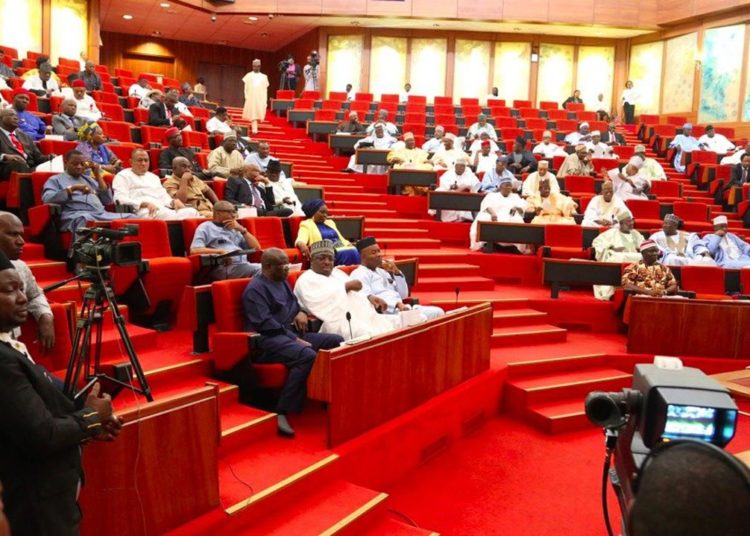
The Nigerian Senate has passed the Insurance Reform Bill 2024, which raises the minimum capital base for insurance companies operating in the country. The reform bill sponsored by Mukhail Abiru, chairman, Senate Committee on Banking, Insurance and Other Financial Institutions, proposes the minimum capital requirement of life insurance companies from the current N2 billion to N15 billion, and general business from N3 billion to N25 billion. Reinsurance reinsurance businesses’ capital will increase from N10 billion to N45 billion.
The bill was read for the third time on Tuesday, following a clause-by-clause consideration and a majority vote in favour by the lawmakers. Section 15 of the bill proposes that a person shall not carry on an insurance business in Nigeria unless the insurer has and maintains the minimum capital requirement. The bill will now be transmitted to the House of Representatives for concurrence, after which it will be transmitted to President Bola Tinubu for assent to become law.

Once enacted, insurance companies across Nigeria will need to comply with the revised minimum capital requirements to continue operations. Stakeholders who advocated for these reforms believe the enhanced capitalisation will empower the industry to underwrite high-risk ventures and improve retention capacity in the local market. The Insurance reform bill is introducing a significant increase in the capital base requirements for insurance and reinsurance firms in Nigeria as part of sweeping reforms aimed at strengthening the industry.
The bill signed by the Senate during the plenary, yesterday in Abuja, approved the increase of the minimum capital requirement for reinsurance companies to N35 billion, up from the current N10 billion. For life assurance businesses, the capital base would rise from N2 billion to N10 billion, while non-life insurance firms would see an increase from N3 billion to N15 billion. Presenting the report titled “The Nigerian Insurance Reform Bill 2024,” Senator Adetokunbo Abiru, Chairman of the Senate Committee on Banking, Insurance, and Other Financial Institutions, explained that the reforms were necessitated by various factors, including currency depreciation, inflation, the Finance Act of 2022, international competitiveness, the African Continental Free Trade Agreement (AfCFTA), and emerging risks such as cyber insurance and consumer credit insurance.
Abiru emphasized that the proposed reforms aim to modernize Nigeria’s insurance sector, consolidating existing legislations, such as the Insurance Act 2003, Marine Insurance Act, Motor Vehicles Third Party Insurance Act, National Insurance Corporation Act, and the Nigerian Reinsurance Corporation Act. According to him, the industry’s legal and regulatory framework had become outdated and was incapable of addressing contemporary challenges or enabling growth and innovation. “All these legislations have surpassed a two-decade mark and lack provisions that can adequately address contemporary challenges and support growth and innovation within the industry.
Legal obsolescence has led to regulatory inefficiencies, hampering the industry’s ability to compete globally,” Abiru noted. The senator further stated that a modernized insurance sector would play a critical role in achieving Nigeria’s economic goals, including evolving risk-based supervision and positioning the country as Africa’s financial hub. During the debate, Senator Jimoh Ibrahim (APC – Ondo South) raised concerns over the proposed N35 billion minimum capital requirement for reinsurance companies, arguing that it was unrealistic given the current economic climate.
“We only have one reinsurance company. Increasing the capital requirement to this level is impossible and could lead to their collapse. As a matter of fact, 20% of this capital will remain deposited in the CBN forever,” Ibrahim argued.
However, his motion to retain the existing N10 billion capital base for reinsurance firms failed, as no senator seconded the proposal during the clause-by-clause consideration of the bill. Deputy President of the Senate, Senator Barau Jibrin (APC – Kano North), who presided over the session, commended the committee for its thorough work following the bill’s passage after the third reading..











